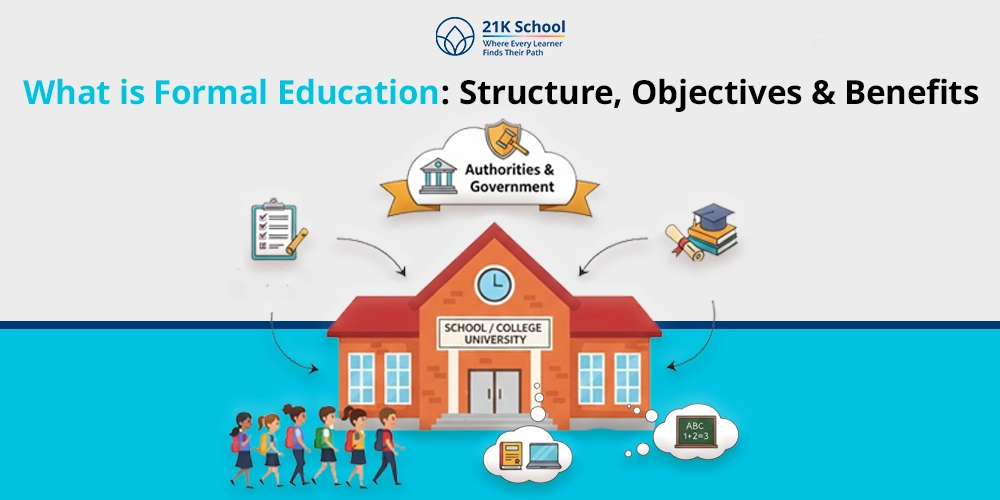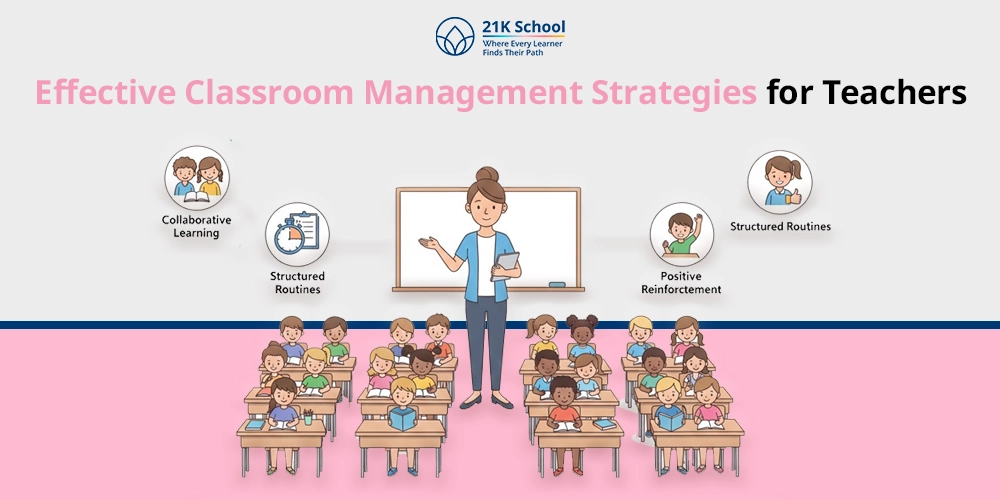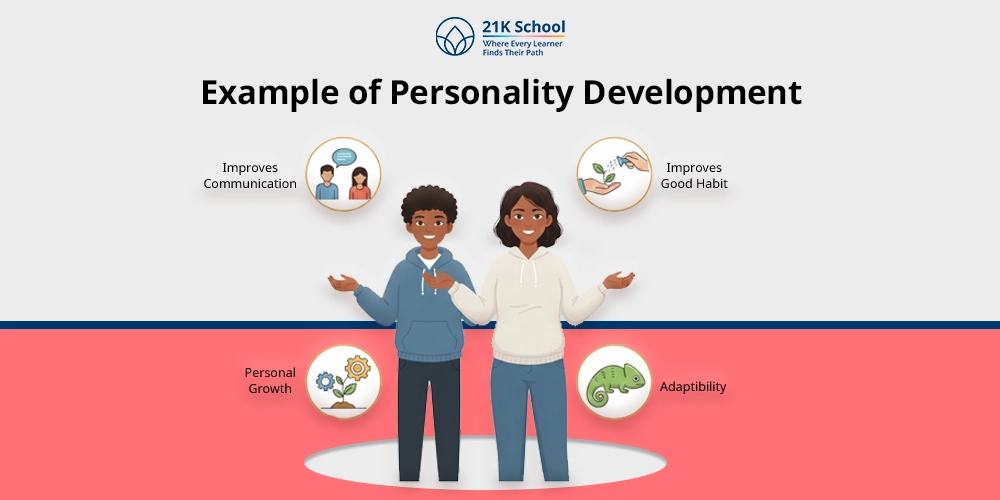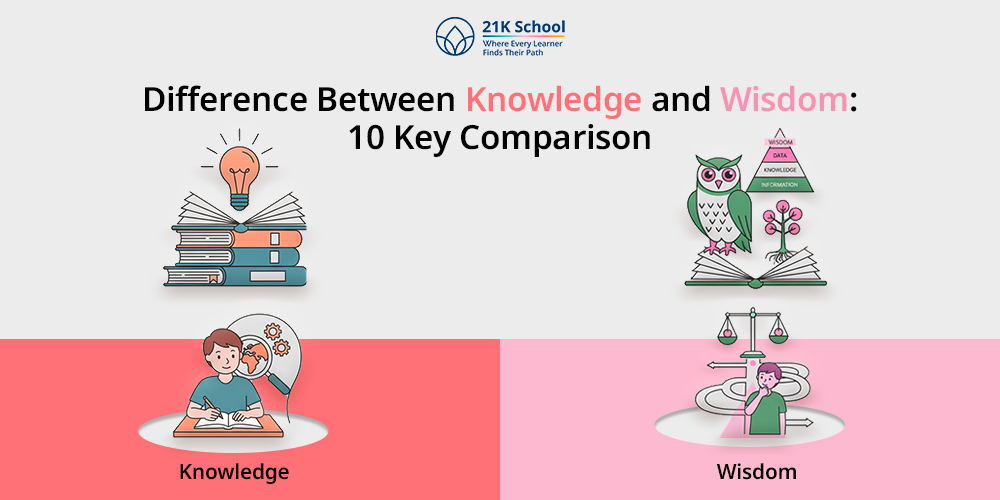
We all live in an environment where everyone is overwhelmed with a bunch of information and facts. To gain any information students are just one click away.
But having all this knowledge does help to make the right choice in a real life situation? Not necessary, it is because both knowledge and wisdom are different from each other.
Have you ever met someone who knows everything but has difficulty in making the right decisions or an individual who does not know each and every fact but advice accurately.
This is because students give knowledge the most preference and forget about wisdom. However, both are different and equally important.
So let’s explore the difference between knowledge and wisdom to clarify their right use in students’ lives.
Contents
What is Knowledge?
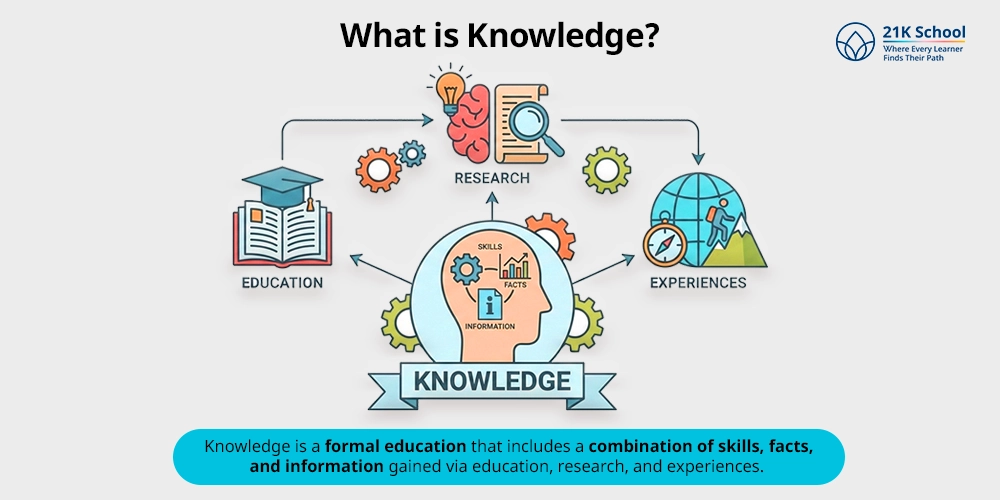
Knowledge is a formal education that includes a combination of skills, facts, and information gained via education, research, and experiences.
It is a foundational source to accumulate data and use accordingly. Knowledge is a powerful method which explains “what to do”.
A simple example includes: A kid understands that excess consumption of sugar can be harmful for teeth.
This information is gained by reading facts, gaining knowledge from others or experts’ opinions. Knowledge doesn’t convert automatically into wise decisions, it needs wisdom too.
What is Wisdom?
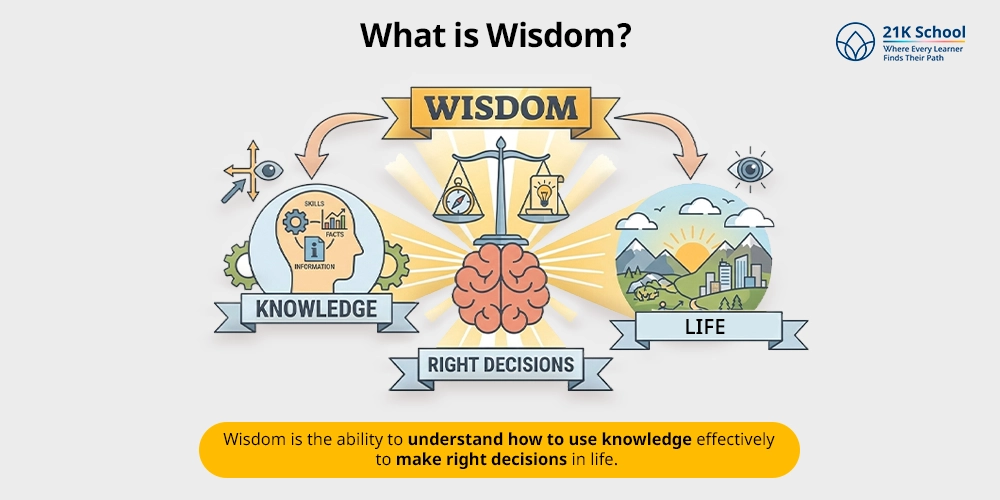
Wisdom is the ability to understand how to use knowledge effectively to make right decisions in life. Through wisdom one can see things in a bigger picture.
In various uncertain or difficult situations wisdom with knowledge helps individuals to balance and take appropriate actions.
A simple example, knowing excessive sugar is harmful is knowledge but, practically balancing the diet is wisdom.
Difference Between Knowledge and Wisdom: 10 Key Points
Mentioned below 10 key points on the difference between knowledge and wisdom will help to explore why both are essential:
| S No. | Aspects | Knowledge | Wisdom |
| 1. | Definition | “Knowledge”, a collection of facts and information. | “Wisdom” is an ability to use knowledge through experience and understanding. |
| 2. | Nature | The nature of knowledge is theoretical and factual. | The nature of knowledge is practical and insightful. |
| 3. | Focus | The main focus of knowledge is based on acquiring information. | The main focus of knowledge is based on applying information meaningfully. |
| 4. | Acquisition | Knowledge is gained through study, reading, or learning. | While wisdom is developed through experience and reflection. |
| 5. | Application | The application of knowledge can exist without action. | Wisdom always involves thoughtful action. |
| 6. | Source | Some of the common sources of knowledge are education, research, or training. | While in wisdom the common sources includes life experience and deep reflection |
| 7. | Time | Knowledge can be gained anytime without any difficulties. | Wisdom takes time and maturity to develop. |
| 8. | Learning Method | The learning method of knowledge is formal education or observation. | The learning method of wisdom is personal experiences and introspection. |
| 9. | Emotional Component | Knowledge is primarily intellectual. | Wisdom is deeply connected to emotions and empathy. |
| 10. | Example | Understanding physics concepts like Newton’s Laws of Motion or how gravity works. | Practicing physics laws in real-life for in-depth understanding. |
1. Definition
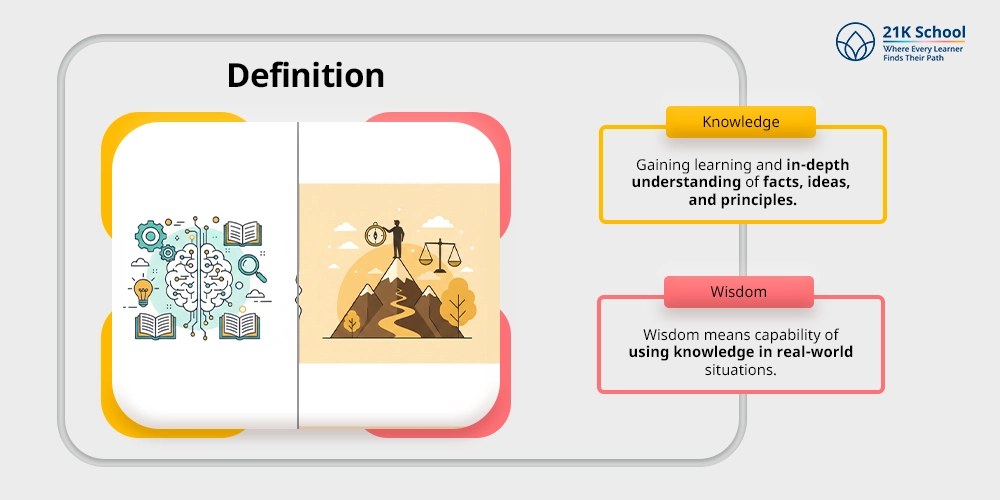
Knowledge: It refers to gaining learning and in-depth understanding of facts, ideas, and principles.
Wisdom: Wisdom means capability of using knowledge in real-world situations and taking the right decision and judgment.
2. Nature
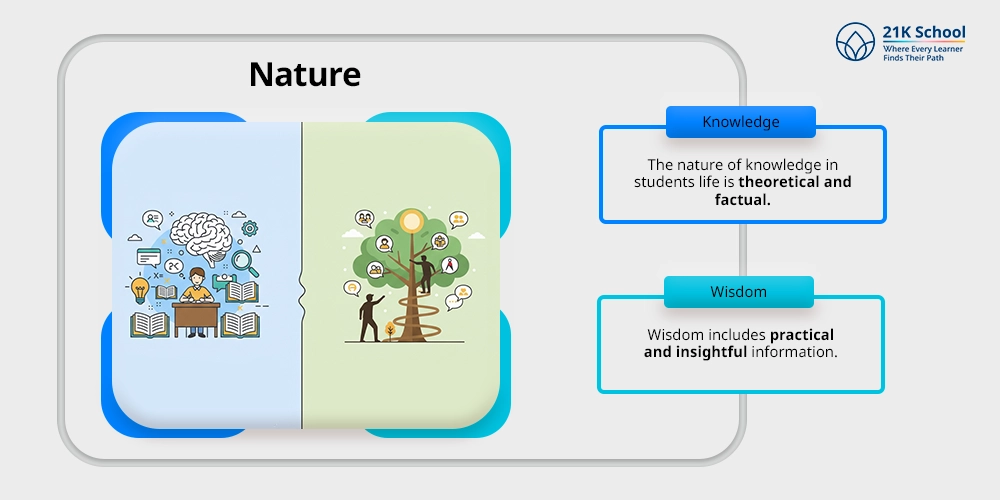
Knowledge: The nature of knowledge in students life is theoretical and factual. Here, learners understand the structure, lessons, and different concepts.
Wisdom: Wisdom includes practical and insightful information where individuals apply in daily life. It shapes students’ behavior.
3. Focus
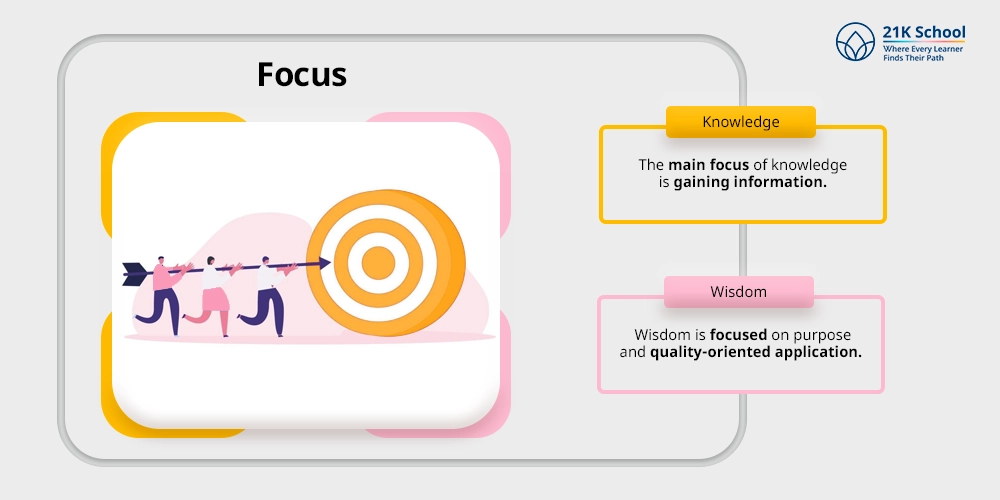
Knowledge: The main focus of knowledge is gaining information especially who wants to master in different fields.
Wisdom: Wisdom is focused on purpose and quality-oriented application of knowledge in a meaningful way.
4. Acquisition
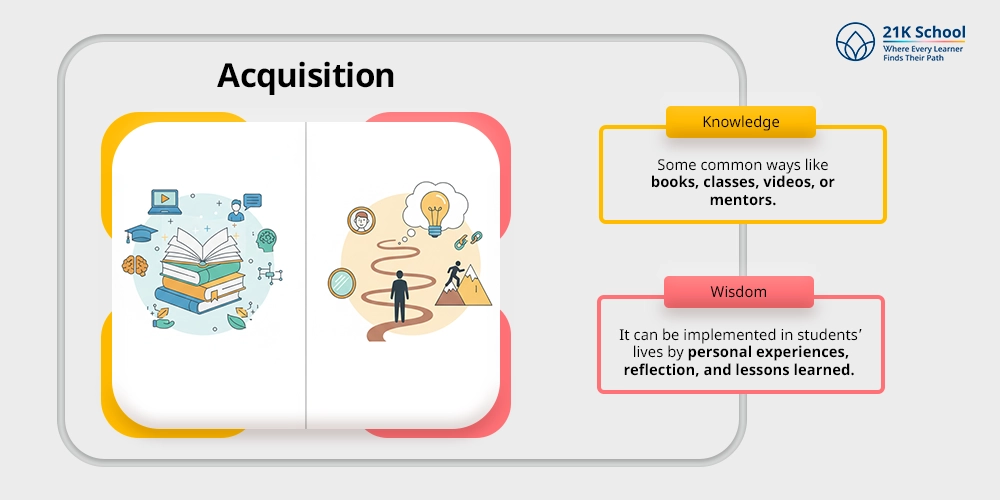
Knowledge: There are many ways to acquire knowledge. Some common ways like books, classes, videos, or mentors.
Wisdom: Wisdom can be implemented in students’ lives by personal experiences, reflection, and lessons learned.
5. Application
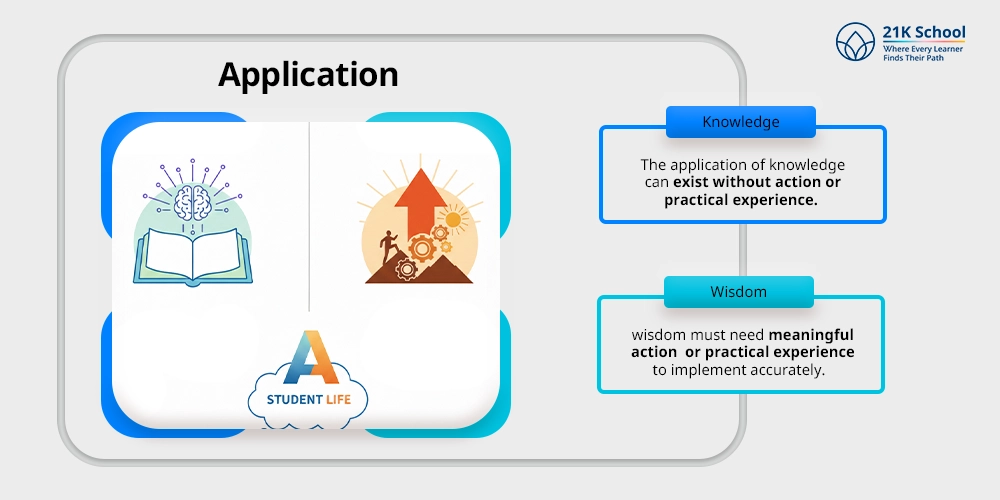
Knowledge: The application of knowledge in students life can exist without action or practical experience.
Wisdom: On the other hand, wisdom must need meaningful action or practical experience to implement accurately.
6. Source
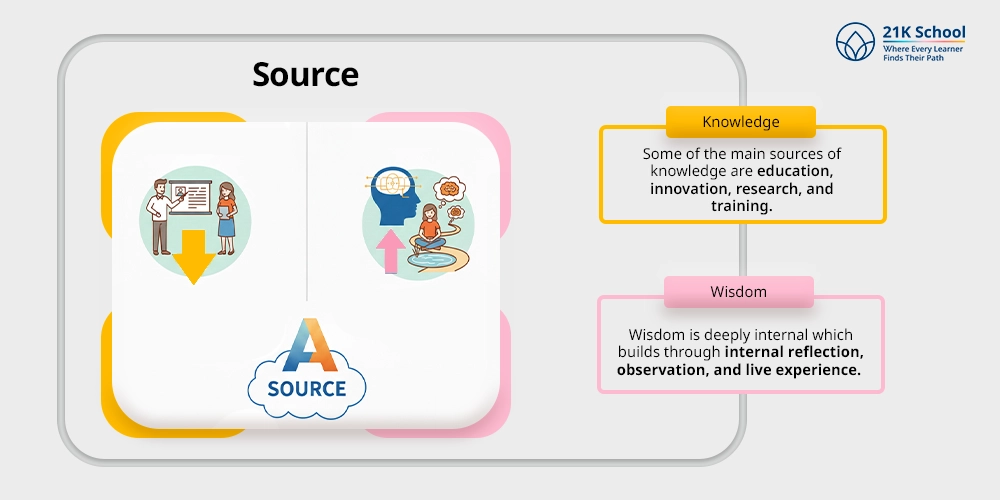
Knowledge: Some of the main sources of knowledge are education , innovation, research, and training. We can say it is external information.
Wisdom: While wisdom is deeply internal which builds through internal reflection, observation, and live experience.
7. Time
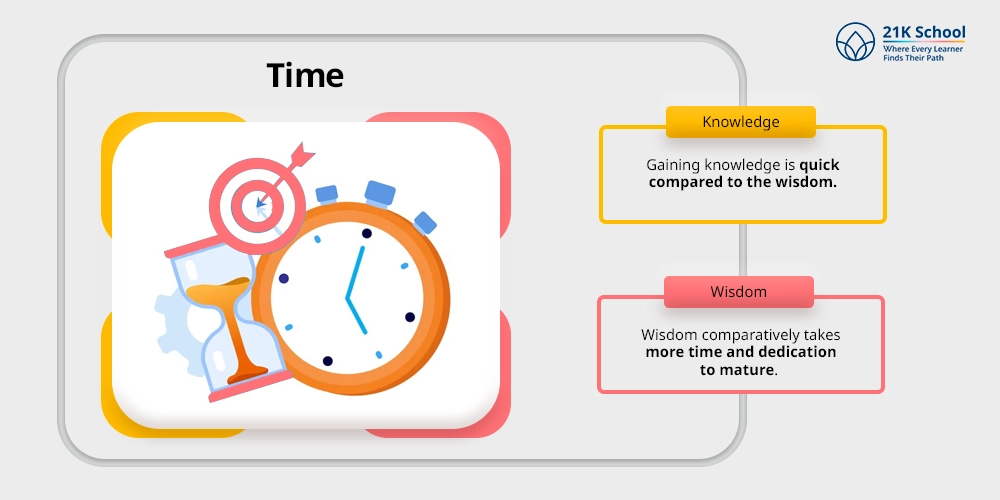
Knowledge: Knowledge can be gained instantly through classroom learning , retention, and exposure.
Wisdom: However, wisdom comparatively takes more time and dedication to mature. It can be done through an individual’s experience, emotional growth, and perspective.
8. Learning Method
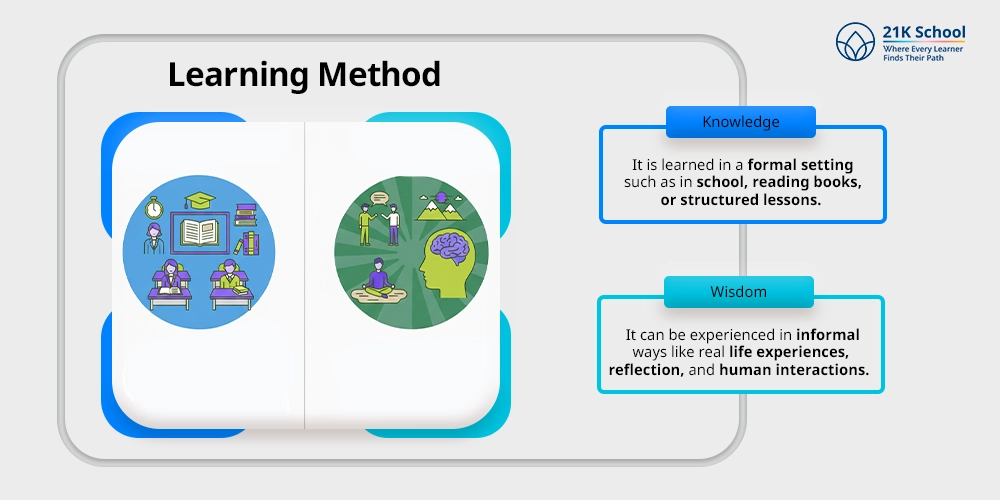
Knowledge: It is learned in a formal setting such as in school, reading books, or structured lessons.
Wisdom: It can be experienced in different informal ways like real life experiences, reflection, and human interactions.
9. Emotional Component
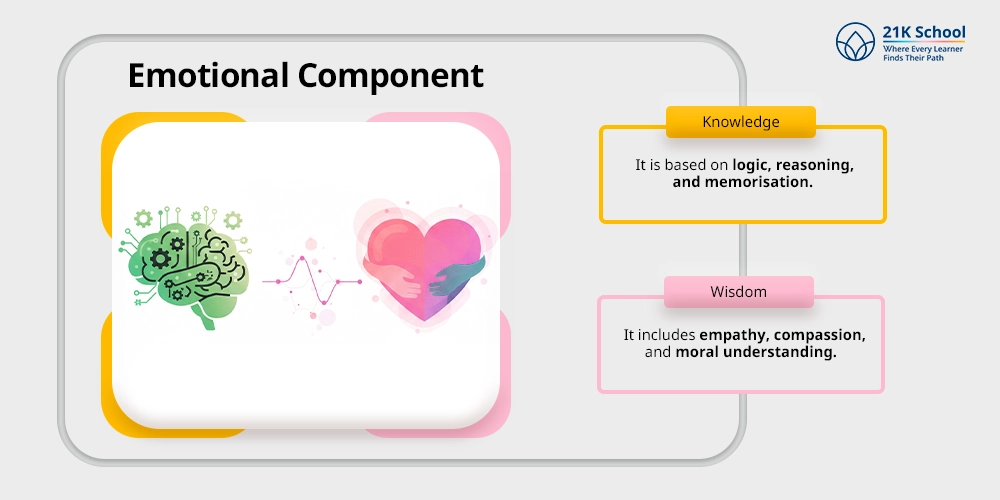
Knowledge: It is based on logic, reasoning, and memorisation.
Wisdom: It includes empathy , compassion, and moral understanding.
10. Example
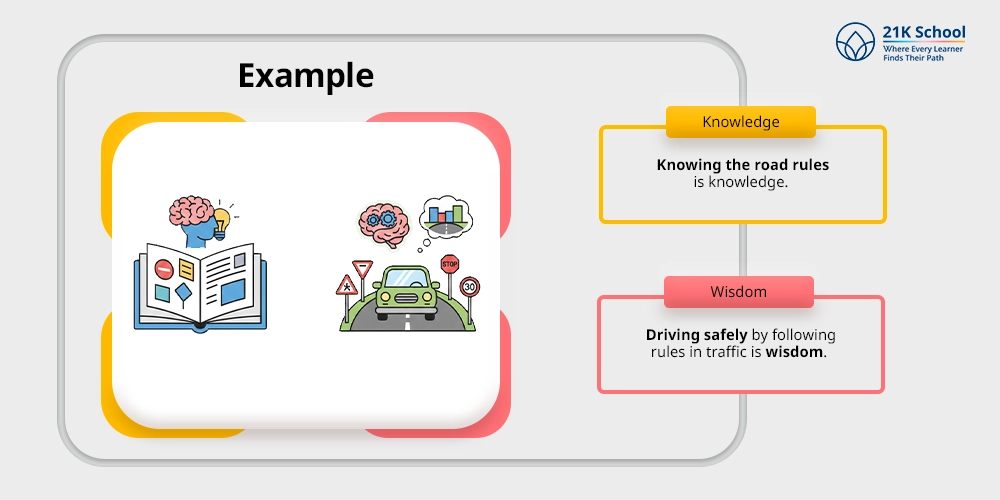
Knowledge: Knowing the road rules is knowledge.
Wisdom: Driving safely by following rules in traffic is wisdom.
Conclusion
The learning journey is existing, unique, and leads students to personal and professional growth. In this journey knowledge and wisdom are two important elements.
Knowledge helps to explore, understand and retain information or data while wisdom guides everyone to take right decisions and to shape students’ minds.
Hopefully the above mentioned top 10 key points on difference between knowledge and wisdom are helpful to get a thoughtful and balanced life.
Remember, both knowledge and wisdom are essential parts of students’ lives in shaping a meaningful academic journey.

